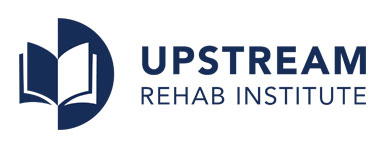The mission of the URI Fellowship in Orthopaedic Manual Physical Therapy is to inspire and empower physical therapists to reach their full potential as advanced practitioners in the sub-specialty field of orthopaedic manual physical therapy.


Description
The URI Fellowship in Orthopaedic Manual Physical Therapy (OMPT) is a 24-month program (with an alternative 18-month option) which provides a combination of advanced didactic education and intensive clinical mentorship to guide board-certified, and/or residency-trained clinicians toward advanced practice in the sub-specialty field of OMPT. Graduates of the program are eligible to apply to become a Fellow of the American Academy of Orthopaedic Manual Physical Therapists, (FAAOMPT).
Location
The URI Fellowship in OMPT is a blended format program – optimizing use of technology to deliver portions of the program in an online environment, while integrating these portions with live didactic lab sessions and 1:1 mentoring. This model allows the learner to participate in the program from anywhere in the continental United States. There are 10 weekend lab courses embedded throughout the curriculum. Approximately half of these will be offered in various geographic regions throughout the United States, while approximately half will be held in the Atlanta, GA area.
Program Outline/ Plan of Study
The curriculum includes four primary components:
- Mentorship and Clinical Practice
- Didactic Coursework via Online, Blended, and On-Site Components
- Teaching and leadership experience via TA roles and prepared presentations for orthopaedic residents and other learners
- Online class facilitation
- Live lab instruction
- Lecturing and presentation skills
- Live case discussion facilitation
- Capstone Projects to include a comprehensive written exam, live patient examinations, live technique examinations, and a scholarly project
In addition, all fellows-in-training (FITs) will complete 190 hours of mentoring. Mentoring hours may be split between the FiT’s home clinic and the mentor’s home clinic. We encourage diversity in our programming, so while 150 hours of mentoring must be completed by a Fellow of the American Academy of Orthopaedic Manual Physical Therapy, there are opportunities to mentor with individuals who have completed other accredited fellowship programming as well (i.e.-Spine, Pain).
Course DescriptionsTuition
The Orthopedic Manual Physical Therapy Fellowship tuition is $15,000. Tuition covers the expense for didactic coursework, weekend lab intensives, research support, program fees, mentor expenses, and all related travel expenses. Upstream Rehab will provide tuition assistance based on a post-graduation employment agreement.
While deciding if a residency is the right clinical pathway for your goals, you may consider using: URI FOMPT Financial Fact Sheet

Goals & Program Outcomes
Program Goals
- Goal 1: To deliver a program consistent with the high educational standards for OMPT fellowship programs set forth by the International Federation of Orthopaedic Manipulative Physical Therapists (IFOMPT) and its member organization in the United States – the American Academy of Orthopaedic Manual Physical Therapists (AAOMPT).
- Goal 2: To maintain a high quality, evidence-informed, OMPT education program that exceeds participant expectations.
- Goal 3: To provide a consistent fellowship experience to a small cohort of fellows leveraging innovative technology to maximize learning
- Goal 4: To develop outstanding clinicians and leaders in the field of orthopaedic manual physical therapy
Program Outcomes
Program Outcomes
One of the ultimate goals of the program is to produce graduates that exhibit excellence in clinical care, education, and leadership. Below are the outcomes for our graduates to date:
Graduation Rate: 91 %
Clinical Outcomes
Compared with national averages using the Keet database, our most recent OMPT Fellowship graduates to date demonstrate 41.2% better clinical outcome scores across the board. When broken down by body region, our graduates’ outcome scores are:
- 86% better for patients with primarily cervicothoracic conditions
- 29.7% better for patients with primarily upper extremity conditions
- 55.9% better for patients with primarily lumbopelvic conditions
- 27.4% better for patients with primarily lower extremity conditions
Education, Scholarship, and Leadership
Of all of our graduates to date,
- 95% have gone on to regularly engage in PT-related educational roles at the entry-level and/or post-professional level
- 60% have gone on to participate in scholarly activity- such as conference presentation, participation in research projects, etc.
- 75% have gone on to hold leadership roles within the APTA, AAOMPT, or their respective companies.
Career Orientation:
Program graduates pursue various roles and career opportunities upon program completion. Many are still engaged as full-time clinicians, some have taken formal roles in post-professional educational leadership, some have taken on roles in operational/administrative leadership, and some have gone on to accept university faculty appointments. Most all remain engaged in a healthy mix of clinical practice, scholarship, teaching/mentoring, and/or leadership in various capacities. All URI OMPT Fellowship graduates to date have responded to post-graduate surveys, which indicate that the average workload for agiven week for a program graduate is spent as follows:
- 36.5% clinical practice
- 12% clinical mentoring
- 8% post-professional PT education
- 17.3% entry-level PT education
- 8% practice administration
- 3.8% community, university, or professional service
What I didn’t expect was how much it would change my entire approach to patient care for the better. My outcome measure scores and patient satisfaction have drastically improved over the past year and I attribute most of this to my participation in the Fellowship.
– Grace M.
See More Testimonials